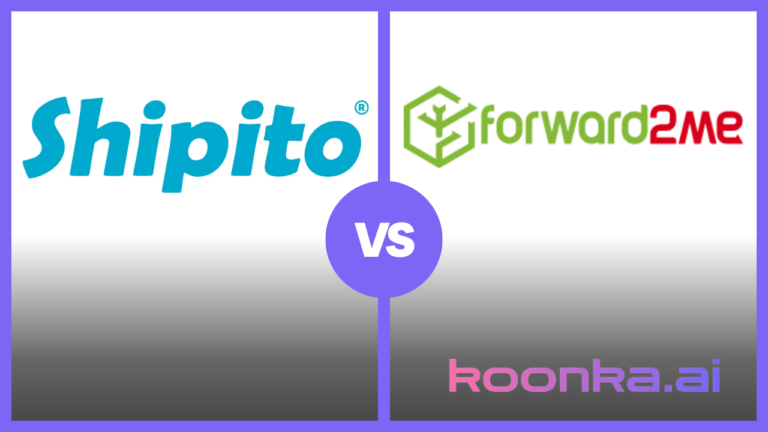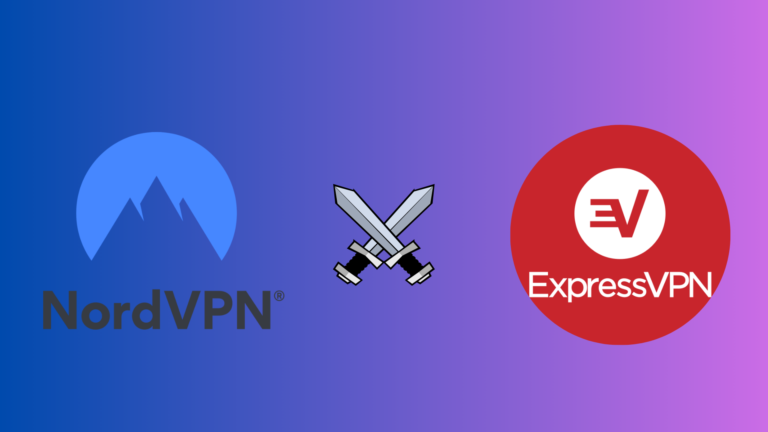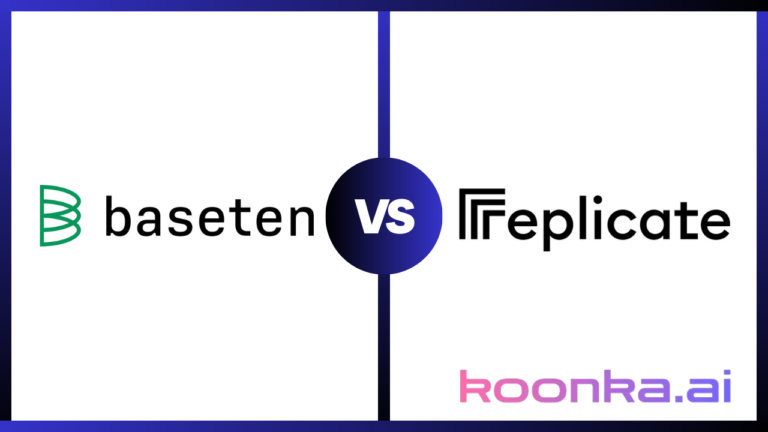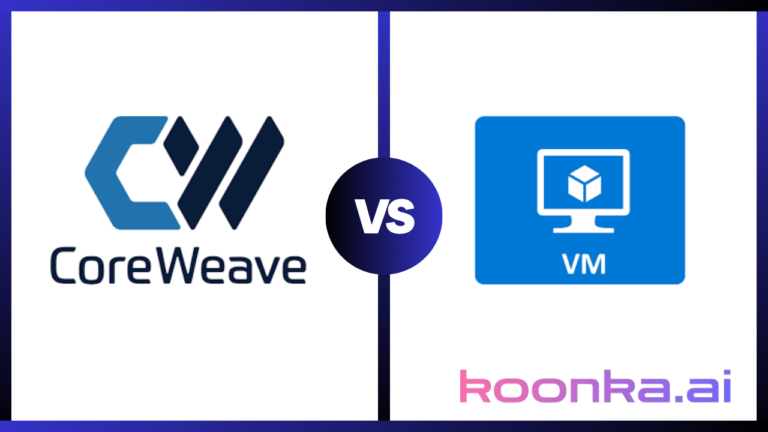Unveiling Somaliland: The Unrecognized Nation’s Quest for Sovereignty and Progress
Somaliland, a self-declared independent nation situated in the Horn of Africa, has been in existence for almost three decades but continues to remain unrecognized by the international community.
The country broke away from Somalia in 1991 after a brutal civil war and has since then established its own somaliland government and institutions, held democratic elections, and maintained peace and stability in the region. However, despite its efforts and progress, Somaliland is still considered a part of Somalia by the United Nations and remains unrecognized as an independent nation.
In this article, we will delve into the history and current state of Somaliland, the challenges it faces in gaining recognition, and its quest for sovereignty and progress. We will also examine the potential reasons behind the international community’s hesitation in recognizing Somaliland and the implications it has on the nation’s future.
Table of Contents
History of Somaliland
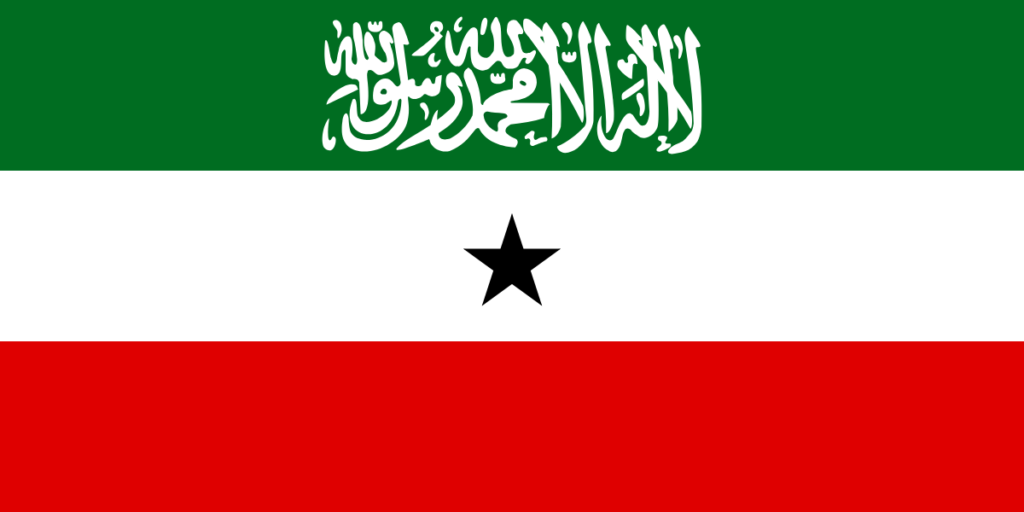
The history of Somaliland can be traced back to ancient times, with evidence of human existence dating back to the Paleolithic and Neolithic eras. However, the modern history of Somaliland began in 1888 when it came under British protectorate as part of British Somaliland.
In 1960, after gaining independence from British rule, Somaliland united with Italian Somalia to form the Somali Republic. However, this union was short-lived as tensions between the two regions quickly escalated, leading to a civil war that lasted for over 20 years.
In 1991, after the collapse of the central government in Somalia, Somaliland declared its independence from the rest of the country and established its own government. This move was welcomed by the local population, who were exhausted by years of conflict and saw it as an opportunity for stability and progress.
Also, unlike Somalia, which has been plagued by political instability and violence, Somaliland has managed to maintain peace and security within its borders. It has also successfully tackled challenges such as droughts and famine through community-driven initiatives.
And while Somaliland has been able to establish a functioning government, it still lacks recognition from the international community. This lack of recognition not only affects its ability to participate in global affairs but also hinders economic development and access to aid and investments.
Where is Somaliland Today?

Despite the lack of recognition, Somaliland has made significant progress in establishing its own institutions and developing its economy. The country has a functioning government with a democratically elected president and parliament, as well as an independent judiciary system.
It has also implemented a biometric identification system that allows citizens to obtain passports, driver’s licenses, and access financial services. Furthermore, Somaliland has invested in infrastructure development, including roads and ports, to facilitate trade and commerce.
In terms of economy, Somaliland has a growing private sector with thriving industries such as agriculture, livestock, and telecommunications. It also boasts a high literacy rate compared to its neighbouring countries.
However, the lack of recognition continues to pose challenges for Somaliland’s progress and development. The country is unable to access loans from international lenders or receive direct aid from foreign governments, hindering its ability to invest in critical sectors such as health and education.
Also, without recognition, Somaliland cannot participate in international trade and has limited access to global markets. This not only affects the country’s economy but also limits its potential for growth and development.
Attractive Location for Investors
Despite the lack of recognition, Somaliland has managed to attract foreign investments in various sectors such as telecommunications, energy, and livestock. Its strategic location along the Gulf of Aden and its proximity to important trade routes make it an attractive destination for investors.
The country also boasts a young and entrepreneurial population that is eager to contribute to its development. In recent years, there has been a rise in start-up companies and small businesses, particularly in the technology sector, which is seen as a potential driver of economic growth.
Somaliland also has rich natural resources, including oil reserves and coastal areas that are ripe for fishing and tourism industries. However, without recognition from the international community, these resources remain largely untapped, hindering the nation’s economic potential.
Plus, the lack of recognition also makes it difficult for Somaliland to access international loans and aid, which could be used for infrastructure development and social programs. This further hinders its progress and ability to provide basic services to its citizens.
While some countries, such as Ethiopia and China (Taiwan NOT China), have established diplomatic ties with Somaliland, the nation still faces challenges in international trade and investment due to its unrecognized status.
Latest Political And Economical Advisements

In recent years, Somaliland has made significant strides in its quest for recognition and progress. In 2018, Ethiopia signed a trade agreement with Somaliland, recognizing it as an autonomous region and establishing economic ties.
On January 1, 2024, Ethiopian Prime Minister Abiy Ahmed and Somaliland President Muse Bihi Abdi signed a Memorandum of Understanding (MoU). This agreement allows Ethiopia to lease over 19 kilometers (12 miles) of Somaliland’s Red Sea coastline near Berbera for 50 years for naval purposes. Additionally, the MoU includes terms for Ethiopia’s future recognition of Somaliland as an independent nation.
This move was seen as a major step towards potential recognition by other countries in the region and beyond. It also opened up opportunities for investments and trade, benefiting both nations.
Furthermore, Somaliland has been actively involved in regional and international forums, promoting its case for recognition. It has also established relationships with other self-declared independent nations such as Taiwan and Kosovo, in hopes of gaining support in its struggle for sovereignty.
Additionally, the nation has made progress in building its infrastructure, including roads and airports, to attract more foreign investments. It has also implemented reforms to improve its business environment and encourage entrepreneurship.
In terms of social development, Somaliland has made strides in education and healthcare, with an increase in the number of schools and hospitals being built across the country. It has also taken steps to address issues such as gender inequality and child marriage.
However, despite these advancements, Somaliland still faces challenges in gaining recognition from the international community. Some experts point to the fear of setting a precedent for other regions seeking independence as a reason behind this hesitation.
But with continued efforts and progress, it is hopeful that Somaliland will soon be recognized as an independent nation, paving the way for economic growth and development for its citizens.
With the recent political and economic advancements, it is evident that Somaliland is on the path towards recognition and progress. Its rich history, strategic location, and determination to overcome challenges have positioned it as a potential leader in the region.
Can Recognizing Somaliland Bring Stability to the Region?
The recognition of Somaliland as an independent nation has been a topic of debate for years, with arguments both in favor and against it. Some believe that recognizing Somaliland could bring stability to the region, while others fear it could lead to further fragmentation and instability.
Those in favor argue that recognizing Somaliland would bring an end to the ongoing tensions between Somalia and Somaliland, allowing for peaceful coexistence and cooperation. It could also serve as a model for other regions seeking independence, showcasing that it is possible to peacefully break away from a larger nation.
Moreover, recognizing Somaliland would enable the nation to access international aid and investments, which could greatly improve its economy and social services. This could also have a positive trickle-down effect on the region, creating jobs and opportunities for neighboring countries.
On the other hand, opponents argue that recognizing Somaliland could set a dangerous precedent for other regions seeking independence within Somalia, leading to further fragmentation and instability in the region. It could also complicate ongoing efforts towards peace and reconciliation between Somalia and Somaliland.
Additionally, recognizing Somaliland would require redrawing the borders of Somalia, which could lead to conflicts and disputes over territory.
DP World investment on Barbara seaport

DP World, a Dubai-based global ports operator, has made significant investments in the Berbera Port in Somaliland, aiming to transform it into a major regional trade hub serving the Horn of Africa. The initiative includes the construction of a new container terminal and the development of the Berbera Economic Zone, among other expansions.
The Berbera Port project, which started operations in March 2017, has seen the inauguration of a new container terminal with a capacity of 500,000 Twenty-Foot Equivalent Units (TEUs) per year, a significant increase from its previous capacity. The terminal features a 400m quay and three ship-to-shore (STS) gantry cranes. This expansion aims not only to increase the port’s capacity but also to accommodate the largest container vessels in operation today.
Also the British investment in the Berbera Seaport and the construction of the Berbera Corridor road by the British government play a pivotal role in enhancing Somaliland’s infrastructure and economic prospects. Through collaboration with DP World and the support of British International Investment, these initiatives aim to transform Berbera into a significant trade hub for the Horn of Africa. The investment underscores the UK’s commitment to fostering regional development, improving trade routes, and supporting economic growth in Somaliland and beyond.
In addition to the port expansion, DP World is developing the Berbera Economic Zone (BEZ), which is considered the longest runway of the airport in Africa. The BEZ is designed to attract investment and new businesses, offering a range of incentives, including exemption from corporate tax and duty-free storage of goods. The zone targets a variety of industries, including warehousing, logistics, traders, manufacturers, and other related sectors, aiming to create jobs and foster economic growth in the region.
The development of Berbera Port and the BEZ is part of a broader strategy by DP World to expand its footprint in Africa and leverage strategic trade routes. The projects are expected to enhance the logistics and trade infrastructure, bringing companies closer to their customers and allowing them to expand into new markets. The integration of the port with the new economic zone is a key element of this strategy, offering easy and fast access to international shipping and serving as a direct, fast, and efficient trade route for Ethiopian transit cargo.
Somaliland’s government views the Berbera Port project as a significant economic opportunity that could transform the port into a regional maritime trading hub, potentially securing its status as an independent nation-state. The initiative also aims to foster closer security ties with Gulf states and attract wider investments in Somaliland’s fishing, transport, and hospitality industries.
Is Somaliland the Gateway to Africa?
With its strategic location along the Gulf of Aden and access to major shipping routes, Somaliland has the potential to become a significant gateway for trade and investment in Africa. The nation’s ports, including Berbera and Zeila, offer easy access to landlocked countries such as Ethiopia, south sudan’s independence, and Uganda.
Furthermore, Somaliland’s political and economic stability, as well as its skilled workforce, make it an attractive destination for businesses looking to expand into Africa. The nation also has a significant diaspora community that could play a crucial role in facilitating trade and investment between Somaliland and other African nations.
Moreover, with the ongoing development projects by DP World at Berbera Port and the BEZ, Somaliland is well-positioned to become a regional logistics and trade hub. These developments will not only benefit neighboring countries but also contribute to Somaliland’s economic growth and job creation, making it an attractive destination for businesses and investors alike.
And while recognition of Somaliland as an independent nation may not be a solution to all of its challenges, it could play a significant role in unlocking its potential and bringing stability to the region.
With continued investments and support from international partners, Somaliland’s journey towards recognition and progress will undoubtedly continue to gain momentum, making it a key player in Africa’s economic growth.
Investment opportunities in Somaliland

Somaliland presents a range of investment opportunities across its primary sectors: agriculture, livestock, and minerals, reflecting its diverse economic potential.
In agriculture, the majority of Somalilanders engage in agro-pastoralism, practicing rain-fed farming of crops such as sorghum and maize, mostly for household consumption. There’s also a smaller but profitable segment of fruit and horticultural farming.
The sector is characterized by smallholder farms, with a significant portion of agriculture being subsistence in nature. Yet, there’s potential for growth, especially through the expansion of irrigated farming, which currently supports about 4,000 farm families. Watermelon cultivation has emerged as a notable income source, with exports to neighboring countries like Djibouti.
Livestock is the backbone of Somaliland’s economy, with nomadic pastoralism and agro-pastoralism being the primary systems of management. Somaliland exports a significant number of livestock, primarily to Gulf countries, contributing greatly to foreign income.
Between 2010 and 2014, the country exported an estimated 16.3 million heads of livestock. This sector has the potential for further growth through improved infrastructure, smart regulation, and better sector coordination.
The mining industry in Somaliland presents significant prospects for economic growth, with the region harboring extensive reserves of minerals, including some of the largest gypsum deposits globally. Recently, it has started exporting valuable minerals such as Columbite-Tantalite to Europe, illustrating the sector’s capacity to enhance Somaliland’s economic stature and international trade connections.
These advancements are supported by foreign partnerships and investments, showcasing the industry’s role in propelling the nation’s economic development. For instance, an oil exploration initiative, nearing its completion, is being carried out by a British-Turkish company, demonstrating the kind of international collaboration that underpins Somaliland’s mineral sector’s potential.
Invest Somaliland and various government departments are keen on promoting these sectors, emphasizing the country’s strategic location, open market policies, and rich natural resources. The government encourages foreign and local investment by offering incentives such as tax exemptions and support for public-private partnerships.
Free Zone Barbara Seaport Opportunities

The Berbera Economic Zone (BEZ) in Somaliland, developed by DP World, represents a significant investment opportunity, positioning Berbera as a major trade hub serving the Horn of Africa. The inauguration of this zone followed the opening of the container terminal at Berbera Port in June 2021, marking a leap towards establishing Berbera as an integrated, regional trade gateway.
This development aims to drive economic growth through increased trade flows, foreign investment, and job creation. DP World’s strategic vision for Berbera involves tapping into its position along one of the world’s busiest sea routes and its access to the hinterland, including Ethiopia.
The Berbera Free Zone (BFZ), covering 12 square kilometers, is intended to attract logistics and manufacturing firms, supporting the growth of Berbera as a regional trading hub for East Africa and creating employment opportunities.
Modeled after Dubai’s Jebel Ali Free Zone, the BFZ aims to attract investments and trade in warehousing, logistics, manufacturing, and related businesses. This initiative complements the port’s growth, enabling it to become a gateway for trade to the region and all of Africa.
DP World plans to develop the free zone in phases, with the initial phase encompassing 4.0 square kilometers out of the 12.2 square kilometers set aside for the project. The occupancy of one phase reaching 85% will trigger the start of the next, with tenants expected to include warehousing, logistics, trade, manufacturing, and other businesses.
The development is designed to create a business-friendly environment to attract investment and create jobs for Somaliland, featuring competitive and conducive conditions enabled by a new Special Economic Zone Law, along with a one-stop shop for all registration and licensing requirements.
In essence, the BEZ and BFZ offer a fertile ground for investment across various sectors, leveraging the strategic location of Berbera to enhance trade and economic development in the Horn of Africa.
Benefit to be in the front in investing in Somaliland before other competitors
Investing in Somaliland before other competitors offer strategic advantages due to its emerging market status, untapped resources, and developing infrastructure. As a relatively unknown entity on the global stage, early investors have the opportunity to establish a strong presence and influence in various sectors, including agriculture, livestock, minerals, and port development. This first-mover advantage can lead to substantial long-term benefits as the country’s economy grows and integrates more closely with international markets.
Studies and reports highlight Somaliland’s significant potential across various sectors. The Berbera Economic Zone (BEZ), developed in partnership with DP World, exemplifies the country’s commitment to becoming a regional trade hub, leveraging its strategic location in the the Horn of Africa. This initiative is expected to boost local prosperity, create jobs, and stimulate economic growth. Moreover, the agricultural and livestock sectors in Somaliland present opportunities for investment in areas with high demand but limited local supply, offering potential for high returns on investment.
Investing in Somaliland now, before the influx of international competitors, allows investors to negotiate favorable terms, access prime investment locations, and establish early relationships with local government and business communities. Furthermore, as Somaliland continues to seek international recognition and develop its legal and regulatory frameworks, early investors can play a role in shaping these policies to create a more favorable investment climate.
The country’s rich natural resources, including minerals and gypsum deposits, have begun attracting European markets’ attention, showcasing its potential beyond regional boundaries. However, it’s the combination of strategic location, resource wealth, and the underutilized labor market that positions Somaliland as a compelling choice for investors looking to capitalize on frontier market opportunities before they become widely recognized and more competitive.
Tourism Opportunities
Somaliland’s rich cultural heritage, diverse landscapes, and beautiful coastlines offer significant potential for tourism development. The country has a unique blend of ancient ruins, traditional nomadic culture, and bustling cities that appeal to travelers seeking off-the-beaten-path destinations.
Somaliland also boasts stunning beaches on the Gulf of Aden and the Red Sea, attracting tourists interested in water sports, marine life, and beach relaxation. Its national parks, including the Daallo Mountain Range and Livestock Reserve, offer opportunities for safari tours and wildlife viewing.
The government of Somaliland recognizes the potential of tourism and has taken steps to promote the sector by establishing a Ministry of Tourism and developing infrastructure such as airports, roads, and hotels. With its untouched landscapes and warm hospitality, Somaliland has the potential to become a popular tourist destination in East Africa.
Additionally, Somaliland’s strategic location also makes it a popular stopover for tourists traveling between Europe and Asia or other African countries. This presents opportunities for investments in the hospitality industry, including hotels, resorts, and restaurants.
Why Invest in Somaliland?
Apart from the specific advantages mentioned above, investing in Somaliland offers numerous benefits to businesses and investors. These include:
- Low-cost labor: Somaliland has a young and growing population, with a significant portion being under 30 years old. This presents an opportunity for businesses to tap into a large pool of skilled and affordable labor.
- Strategic location: Somaliland’s location on the Horn of Africa, with access to major shipping routes and connections to Europe, Asia, and the Middle East, makes it an ideal hub for trade and commerce.
- Investment incentives: The government of Somaliland offers various investment incentives such as tax breaks, duty exemptions, and land acquisition options to attract foreign investment.
- Business-friendly policies: The country has enacted several laws and regulations to facilitate business operations, including the Special Economic Zone Law mentioned earlier. These policies aim to create a favorable investment climate and protect investors’ rights.
- Growing economy: Somaliland’s GDP has been growing steadily in recent years, with an average annual growth rate of 4.5%. This trend is expected to continue as the country strengthens its infrastructure, attracts foreign investment, and diversifies its economy.
By investing in Somaliland, businesses and investors have the opportunity to not only benefit from the country’s current potential but also contribute to its future growth and development. As the country continues to attract investment and recognition on the global stage, early investors can establish a strong foothold and reap long-term rewards.
Tips for Investing in Somaliland

If you are considering investing in Somaliland, here are some tips to keep in mind:
- Conduct thorough research: Before making any investment decisions, it is crucial to conduct extensive research on the market, sector, and potential risks. This will help you make informed choices and mitigate any potential challenges.
- Partner with local businesses: Working with local businesses and partners can help you navigate the market, understand cultural nuances, and build relationships with key stakeholders.
- Stay informed on policy changes: As mentioned earlier, Somaliland is still developing its legal and regulatory frameworks. It is essential to stay updated on any policy changes that may affect your business operations or investment plans.
- Leverage government resources: The Ministry of Investment and Development, as well as other government agencies, can provide valuable resources and support to investors. Take advantage of these resources to facilitate your investment journey.
- Build relationships: Building strong relationships with local communities, businesses, and government officials is crucial for sustainable and successful investments in Somaliland. These relationships can also help you navigate any challenges that may arise.
By following these tips and being proactive in your approach, investing in Somaliland can be a rewarding and mutually beneficial experience for both investors and the country’s development.
Does Somaliland Have Its Challenges?
Despite its aspirations and strides towards development and stability, Somaliland faces several challenges that could impact investment and growth. These challenges stem from its unique political status, economic infrastructure, and social dynamics.
- International Recognition: Somaliland’s lack of formal recognition as a sovereign state by the international community limits its access to foreign aid, international financial systems, and the ability to enter into treaties. This status complicates its efforts to attract foreign direct investment and participate fully in global trade.
- Infrastructure Development: While significant investments, such as the expansion of the Berbera Port, have been made, Somaliland still grapples with infrastructure deficits in transportation, water supply, and energy. These infrastructure gaps can impede business operations and economic expansion.
- Economic Diversification: Somaliland’s economy is heavily reliant on livestock exports, remittances, and increasingly, the port’s activities. This dependence on a limited number of economic activities makes it vulnerable to external shocks and fluctuations in global markets.
- Legal and Regulatory Framework: While Somaliland has made efforts to establish a business-friendly environment, there are still gaps in its legal and regulatory frameworks that could pose challenges to investors, particularly in property rights, contract enforcement, and dispute resolution.
- Social Challenges: Issues such as unemployment, particularly among the youth, and limited access to education and healthcare, pose social challenges that can affect stability and growth prospects.
Despite these challenges, Somaliland’s strategic location, the untapped market potential, and efforts towards political stability and economic reform present compelling opportunities for investors willing to navigate its complex landscape.
So with the right approach and careful consideration, investing in Somaliland can be a lucrative endeavor with long-term benefits for both investors and the country’s development. As the country continues to grow and develop, it is poised to become an attractive investment destination in East Africa.
By being proactive, informed, and adaptable, investors can play a vital role in shaping Somaliland’s future and reaping the rewards of early investments in this promising market.
FAQs
Why has the international community not recognized Somaliland’s independence?
Somaliland’s quest for recognition as an independent state faces complex challenges, primarily rooted in the principle of territorial integrity upheld by international bodies such as the African Union and the United Nations. Despite Somaliland declaring independence from Somalia in 1991 and establishing a functioning government with its democratic processes, including free and fair elections, the international community remains hesitant to recognize it as a separate nation.
How has the absence of formal recognition developed and international affairs?
The lack of formal recognition from international financial institutions such as the World Bank and the International Monetary Fund has significantly impacted Somaliland’s economic development and ability to engage in international affairs. Without recognition, Somaliland cannot access foreign aid, loans, and development programs typically available to sovereign states.
What role did the Somali National Movement play in Somaliland’s declaration of independence?
The Somali National Movement (SNM) played a pivotal role in Somaliland’s declaration of independence. It was initially founded as a liberation movement against the dictatorial regime of Siad Barre in Somalia. Following the collapse of Barre’s government in 1991, the SNM declared the northern regions’ independence, reinstating the boundaries of the former British Somaliland Protectorate as the newly independent Republic of Somaliland.
What steps could potentially lead to its recognition by the African Union or the federal government of Somalia?
For Somaliland to gain recognition by the African Union or the federal government of Somalia, several diplomatic and political steps would need to be taken. Firstly, sustained dialogue between Somaliland and the Somali government could help address mutual concerns and explore the possibilities of recognition or special status within a federal framework.
Conclusion
Investing in Somaliland is a unique opportunity to not only benefit from its current potential but also contribute to its future growth and development. With a strategic location, untapped market potential, and efforts toward political stability and economic reform, the country presents compelling opportunities for investors looking for new frontiers.
By conducting thorough research, leveraging government resources, building relationships, and staying updated on policy changes, investors can mitigate potential challenges and maximize their returns in Somaliland.
While the country does face its set of challenges, with the right approach and careful consideration, investing in Somaliland can be a rewarding and mutually beneficial experience for both investors and the country’s development. So if you are considering expanding your portfolio or venturing into new markets, Somaliland is definitely worth considering.


